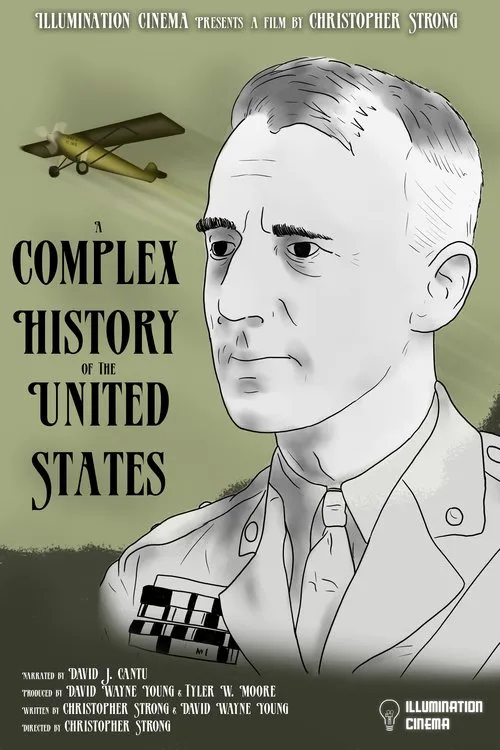A Complex History of the United States

Plot
A Complex History of the United States is a thought-provoking documentary that delves into the intricate and often tumultuous history of the United States, spanning from the Spanish-American War to the aftermath of World War I. The film serves as a captivating exploration of America's rise to global power, shedding light on pivotal historical figures, their roles, and the significant impact they had on shaping the nation's trajectory. The documentary begins by examining the Spanish-American War, a pivotal moment in American history that marked the country's emergence as a global power. The war, fought between the United States and Spain from 1898, resulted in the U.S. gaining control of several Spanish colonies, including Puerto Rico, Guam, and the Philippines. This conflict signaled the United States' entrance onto the world stage, as it began to flex its military muscles and assert its dominance on the global scene. One of the key figures examined in the documentary is Smedley Butler, a decorated Marine Corps General who played a significant role in the U.S. military interventions in Central America and the Philippines during the early 20th century. Butler's experiences in these conflicts would later shape his perspective on American foreign policy and lead him to speak out against the wars he had fought in. In his seminal book, "War is a Racket," Butler exposed the brutal truth about the U.S. military's involvement in these regions, revealing the manipulation and exploitation of local populations for economic gain. Through Butler's story, the documentary highlights the dark underbelly of American imperialism and the devastating consequences it had on the people and landscapes affected. As the documentary progresses, it turns its attention to the U.S. government's handling of the Treaty of Versailles, signed at the end of World War I. The treaty imposed harsh penalties on Germany, including significant reparations and territorial losses. This led to widespread resentment among the German people, creating a fertile ground for extremist ideologies to take root. The documentary explores the rise of fascist and nationalist movements in Germany, which would eventually coalesce around Adolf Hitler and the Nazi Party. Herbert Hoover, the 31st President of the United States, is another key figure examined in the documentary. Initially hailed as a humanitarian hero for his efforts in relief work during World War I and the subsequent Russian famine, Hoover's legacy is later tarnished by his inaction in addressing the economic crisis of the 1920s and the devastating effects of the Great Depression. The documentary highlights the contradictions in Hoover's character, revealing a complex individual who struggled to balance his idealism with the harsh realities of American politics and the pressures of the global economy. The documentary also delves into the life and work of Charles Lindbergh, the famous aviator who captured the world's attention with his solo transatlantic flight in 1927. Lindbergh's experiences as a national hero and his subsequent rise to fame serve as a poignant reminder of the intoxicating mix of celebrity and politics that defined the United States in the early 20th century. However, the documentary also scrutinizes Lindbergh's views on the rise of fascism in Europe, which were often naive and sometimes outright sympathetic. This ambivalence has led to ongoing debates about Lindbergh's legacy, with some viewing him as a national hero and others seeing him as a figure tainted by his association with extremist ideologies. Throughout the documentary, viewers are treated to a wealth of archival footage, photographs, and interviews that bring the era to vibrant life. From the jazz clubs of Harlem to the opulent parties of the Roaring Twenties, the film paints a captivating portrait of an America characterized by excess, inequality, and growing instability. Yet, beneath the glitz and glamour of the Lost Generation lay a nation teetering on the edge of chaos, its social and economic fault lines waiting to be exploited by the far right and far left. Ultimately, A Complex History of the United States serves as a thought-provoking reminder of the darker aspects of American history, a country built on the principles of freedom, equality, and democracy, yet often marred by the brutal realities of imperialism, racism, and extremism. By examining the complexities of this period, the documentary offers a nuanced understanding of the nation's development and the pivotal figures who shaped its trajectory. As the U.S. grapples with its own set of pressing issues in the 21st century, A Complex History of the United States stands as a timely and unsettling reminder of the country's messy past and the ongoing struggle to reconcile its ideals with the harsh realities of its history.
Reviews
Recommendations


